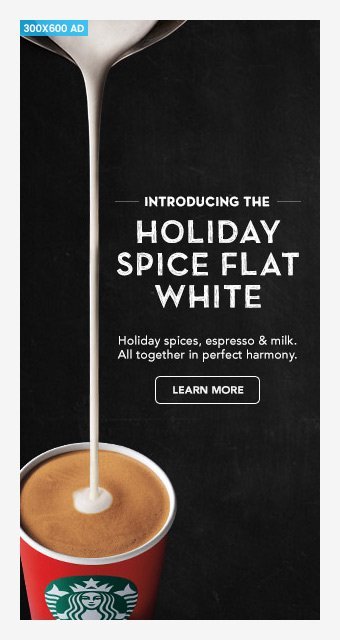Updated 2 min read
US stocks gained on Friday as investors breathed a relative sigh of relief over an inflation report that came in line with expectations. Wall Street also digested new data signaling souring consumer sentiment and President Trump’s fresh round of punishing tariffs.
The Dow Jones Industrial Average (^DJI) and the S&P 500 (^GSPC) rose roughly 0.6%. The tech-heavy Nasdaq Composite (^IXIC) climbed 0.4%.
The gains marked a shift after three straight days of losses for the major US gauges. Still, all three major indexes ended the week lower by less than 1%.
Stocks rebounded from a late-morning slump as investors contemplated the latest inflation data and the results of the University of Michigan’s consumer sentiment survey, which found that Americans were more pessimistic about the US economy than expected in September.
August’s reading of the Personal Consumption Expenditures (PCE) index, which contains the Fed-favored “core” PCE measure of inflation, showed prices rising in line with expectations. The “core” PCE price index rose 2.9% year over year and 0.2% month over month in August, both coming in alongside what economists were expecting, even as inflation remained sticky and well above the Fed’s 2% target.
Investors are also studying Trump’s new threat to put a 100% levy on imports of branded drugs. The rate will apply to any pharmaceutical company that isn’t already building a manufacturing plant in the US, the president said in a social media post late Thursday, but offered no further details. Shares of drugmakers in Europe and Asia faltered after the move.
Imports of heavy trucks and certain categories of furniture also face new heftier tariffs, Trump said, with the new duties to come into effect on Oct. 1 — less than a week away.
The trade salvo adds fresh uncertainty for markets already grappling with concerns about the sustainability of the AI boom and a high risk of a US government shutdown. The S&P 500 is eyeing its first weekly loss this month after a Wall Street slump snapped a record-setting rally.
Meanwhile, Trump signed an order approving a deal to spin off TikTok’s US operations from China’s ByteDance, though Beijing still needs to sign off on the agreement. But the proposed $14 billion price tag was greeted with surprise on Wall Street, seen as undervaluing a global leader in social media estimated to potentially be worth $40 billion.
LIVE COVERAGE IS OVER 21 updates
-
Major averages rise, but end week lower
The major averages rose slightly on Friday but closed the week lower.
The Dow Jones Industrial Average (^DJI) and the S&P 500 (^GSPC) gained 0.6%. The tech-heavy Nasdaq Composite (^IXIC) increased 0.4%. All three indexes closed lower for the week, with the Nasdaq and S&P 500 snapping three straight weekly gains.
Some of the “Magnificent Seven” Big Tech stocks also closed lower for the week. Amazon (AMZN) led the declines, dropping more than 4% over the five day period, while Meta (META) and Alphabet (GOOGL, GOOG) also notched weekly losses.
Microsoft (MSFT) slipped more than 1% during the five-day period while Nvidia (NVDA) and Tesla (TSLA) closed out higher.
-
Stocks rise to session highs, pharmaceutical stocks climb despite new tariffs
Stocks rose broadly on Friday afternoon to session highs and recouped losses as PCE inflation data matched expectations, outweighing new tariffs from the Trump administration and a more negative reading on consumer sentiment.
Notably, pharmaceutical stocks seemed to shrug off the announcement of a 100% duty on patented drugs, likely keying in on a provision that exempts manufacturers from the tariffs if the producer is building a manufacturing plant in the US.
Eli Lilly (LLY) rose 1.4%, Merck & Co. (MRK) and Johnson & Johnson (JNJ) added 1%, and Pfizer (PFE) moved 0.5% higher.
Per AP, companies started stockpiling medicines in the US earlier this year after Trump first proposed the tariffs. Jefferies analyst Akash Tewari said in a research note that Thursday’s announcement shouldn’t have a material impact on the big drugmakers, given their construction plans.
-
Electronic Arts surge on report it may go private
Electronic Arts (EA) stock surged on Friday after the Wall Street Journal reported the electronic game maker is nearing a deal to go private.
Shares jumped 15% in afternoon trading.
According to the report, the deal, valued at $50 billion, would be the largest leveraged buyout of all time.
Private equity firm Silver Lake and Saudi Arabia’s Public Investment Fund are some of the investors involved in the agreement, which could be disclosed as early as next week.
-
Silver rallies over 3%, nearing 2011 high
Silver’s (SI=F) rally continued on Friday, pulling the precious metal closer to its 2011 high of $49.
Contracts for silver rose nearly 4% as of midday trading to $46.88 per troy ounce. On Monday, silver broke above a resistance level of $42 and is now up 10% over the past five days.
For the year, silver prices have gained more than 60%, outpacing the similarly impressive rally in gold (GC=F), which has returned 46% year to date.
Wall Street sees more room to run in the rallies in gold and silver as investors look to safe havens, the Federal Reserve begins its easing cycle, and the dollar index (DX-Y.NYB) declines. Though UBS noted that silver could see heightened volatility in the near term.
“We expect silver to attract catch-up and high-beta-gold trades, paving the way for further gains in the coming quarters,” the UBS analysts wrote in a note last week. “That said, unlike the strategic nature of gold interest, we expect investors to take a more tactical stance when it comes to silver. This implies that they will be quicker to exit positions and book profits in silver.”
-
Foreign investors are sticking with US stocks amid Trump tariff turmoil
Yahoo Finance’s Allie Canal reports:
-
Boeing stock climbs as FAA eases restrictions, plane maker secures new orders
Boeing (BA) stock glided 4% higher in midday trading on Friday after the Wall Street Journal reported that the Federal Aviation Administration will allow the company to once again perform its own final safety checks on 737 Max jets starting next week.
The authority to perform the checks suggests a vote of confidence from regulators that Boeing has improved its safety culture since a series of mishaps last year, including a door plug blowout on an Alaska Airlines jet.
The company also clinched two large deals with Turkish Airlines and Norwegian Air Shuttle, boosting the stock. Turkish Airlines placed an order for 75 787 Dreamliners, while Norwegian Air ordered 30 737-8 aircraft.
Year to date, Boeing stock has climbed 25%.
-
Sticky inflation reading unlikely to knock Fed off course for more rate cuts
Yahoo Finance’s Jennifer Schonberger reports:
-
Mixed week for Mag 7 as Apple gains on iPhone optimism, Amazon leads declines
The “Magnificent Seven” Big Tech stocks were broadly set for weekly losses.
Amazon (AMZN) led the declines, set to record a 5% drop, while Meta (META) was on track for a more than 4% fall, and Alphabet (GOOGL, GOOG) was eyeing a 3% loss. Microsoft (MSFT) was set to see a 2% pullback, while Nvidia (NVDA) and Tesla (TSLA) were on track to end the trading week roughly flat.
The declines in the megacap stocks come amid broader market losses, with the tech-heavy Nasdaq Composite (^IXIC) snapping a record-breaking rally (amid ongoing concerns of an AI bubble) and all three major stock indexes recording three consecutive days of losses this week.
Apple (AAPL), meanwhile, was eyeing a more than 4% gain for the week as Wall Street issued bullish takes on the stock after its latest iPhone lineup hit store shelves.
-
Consumer sentiment sours more than expected in September
Final results for the University of Michigan’s September consumer sentiment survey released Friday showed sentiment slipped more than expected over the past month.
The index of consumer sentiment fell to 55.1 — lower than the 55.4 projected by economists tracked by Bloomberg as well as the 58.2 in August and 70.3 the prior year.
Preliminary survey results on Sept. 12 had already shown American consumers souring on the economy more than initially expected during the first half of the month, as the director of University of Michigan’s consumer surveys, Joanne Hsu, said participants were concerned over the impact of Trump’s tariffs.
“Interviews this month highlight the fact that consumers feel pressure both from the prospect of higher inflation as well as the risk of weaker labor markets,” she said Friday. “Consumers continue to express frustration over the persistence of high prices, with 44% spontaneously mentioning that high prices are eroding their personal finances, the highest reading in a year.”
Hsu noted some nuances to the final survey results, saying a key exception to American pessimism over the economy was “consumers with larger stock holdings,” a group whose sentiment was steady in September, “while for those with smaller or no holdings, sentiment decreased.”
Sentiment also differed by political affiliation, moving down about 9% for independents and 4% for Republicans, but lifting for Democrats.
Meanwhile, a look at Americans’ inflation expectations for the month offered a slightly more optimistic perspective on the economy.
Year-ahead inflation expectations dropped to 4.7% in September — less than the 4.8% recorded the prior month, a level that was expected to remain unchanged by economists tracked by Bloomberg. Long-term inflation expectations for the next five to 10 years rose to 3.7% in September from 3.5% in August, but that was less than the 3.9% projected by economists.
The fresh data comes after the Fed’s preferred inflation gauge, the Personal Consumption Expenditures (PCE) price index, showed “core” inflation easing slightly in August as projected by economists, helping traders maintain confidence in a rate cut from the Federal Reserve at its October meeting.
-
Why odds of a US government shutdown are spiking: Both parties see some upside
The growing sense in Washington is that the latest government funding fight between Republicans and Democrats is shaping up differently, reports Yahoo Finance’s Ben Werschkul.
He writes:
-
Stocks rise at the open after three days of losses
US stocks rose on Friday at the open.
The Dow Jones Industrial Average (^DJI) rose roughly 0.4%, while the S&P 500 (^GSPC) gained 0.3%. The tech-heavy Nasdaq Composite (^IXIC) also rose 0.15%.
The gains come after three straight days of losses for the major US gauges. This morning, investors are weighing President Trump’s latest round of tariffs and the Fed’s preferred inflation gauge, which showed prices rising in line with expectations.
Next up, the University of Michigan’s final results for its September consumer sentiment survey at 10 am E.T. will provide insight into how Americans are feeling about the economy.
-
Treasury yields stable as Fed’s preferred inflation gauge meets expectations
US Treasury yields were little changed after the release of the Personal Consumption Expenditures (PCE) price index report Friday, which showed “core” inflation easing slightly in August from the prior month as economists expected.
The 30-year yield (^TYX) remained around 4.74% after the report, but was down about 1 basis point from Thursday’s close. The 10-year yield (^TNX) was also stable at 4.16%, but also 1 basis point below its level at the end of the prior day’s trading session.
Meanwhile, traders are widely expecting the Fed to cut interest rates again at the central bank’s October meeting, pricing in roughly 88% chances of a cut as of Friday morning, according to CME Group.
-
Wayfair, RH stocks fall after President Trump announces tariffs on furniture
Shares of furniture purveyors Wayfair (W) and RH (RH) dropped 3% on Friday ahead of the opening bell as investors weighed the potential impact from the Trump administration’s new furniture tariffs.
On Thursday, President Trump announced a new 50% tariff on kitchen cabinets, bathroom vanities, and associated products, and a 30% tariff on upholstered furniture beginning Oct. 1.
“There’s going to be gross margin headwinds from tariffs coming,” RH CEO Gary Friedman said on an earnings call on Sept. 11 while the government was still exploring sectoral furniture tariffs. “You just can’t raise prices fast enough, and there’s only so much room our manufacturing partners have [to absorb costs].”
Friedman has been vocal in saying that smaller companies may not be able to survive a higher tariff environment and that additional tariffs would hurt the industry. RH manufactures approximately half of its upholstered furniture in the US and imports the other half.
-
PCE index shows prices rising in line with expectations
The US Bureau of Economic Analysis’ Personal Consumption Expenditures (PCE) price index report Friday showed the Fed’s preferred inflation gauge was in line with expectations for August.
The PCE price index climbed 0.3% in August, a slight uptick from the prior month’s 0.2% rise but in line with the 0.3% estimated by economists tracked by Bloomberg. On an annual basis, the index rose 2.7% for the month, above the 2.6% increase seen in August 2024.
The “core” PCE index, which excludes volatile food and energy costs, was up 0.2% in August from the prior month, less than the 0.3% uptick in July. On an annual basis, the core PCE index was unchanged at 2.9%. Those figures were also on par with economists’ estimates.
-
Costco stock dips after earnings top estimates
Costco (COST) stock dipped less than 1% in premarket trading on Friday, as the wholesaler’s same-store sales figures didn’t impress Wall Street.
In an earnings call on Thursday evening, CFO Gary Millerchip noted that value items and necessities remained strong for the retailer, but customers are being more deliberate about discretionary purchases, Yahoo Finance’s Brooke DiPalma reported.
For the quarter, revenue came in at $86.16 billion, compared to expectations of $86.03 billion, while adjusted earnings per share were $5.87, higher than the forecast $5.82, per Bloomberg consensus estimates.
Overall, adjusted same-store sales increased 6.4% and were slightly higher than the expected 6.2% growth, though US same-store sales, which increased 6%, slightly underperformed the Street’s estimates.
-
Trump’s 100% pharma tariff plan looks like a reprieve for many drugmakers
President Trump’s plan to place a 100% tariff rate on US imports of patented drugs was greeted with a shrug by many investors, who expect exemptions for pharmas with US plants to soften the blow.
Bloomberg reports:
-
Good morning. Here’s what’s happening today.
-
Premarket trending tickers: Eli Lilly, Paccar and Intel
Here’s a look at some of the top stocks trending in premarket trading:
Eli Lilly (LLY) shares rose 1% in premarket trading on Friday after President Trump said he would impose tariffs on imported drugs.
Intel (INTC) stock rose 3% premarket after news came out that it was seeking investment not only from Apple (AAPL) but also from TSM (TSM).
Paccar (PCAR) stock rose 5% in premarket trading. The US company which supports, designs and manufactures heavy trucks is said to be one of the beneficiaries of President Trump’s tariffs on trucks.
-
Intel’s comeback is fueled by the promise of more deals
Dealmaking is the name of the game. Just ask Intel (INTC), writes Yahoo Finance’s Hamza Shaban.
He reports in the takeaway from today’s Morning Brief:
-
Asian drug shares fall in response to Trump’s tariff announcement
Pharmaceutical stocks across Asia fell overnight Thursday following Trump’s announcement that starting October 1, imports of branded drugs could face tariffs of up to 100%, unless manufacturers have already begun construction of production facilities in the United States.
Reuters reports:







